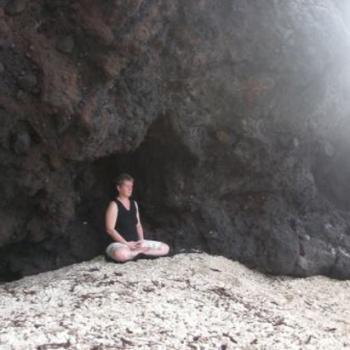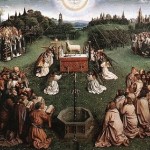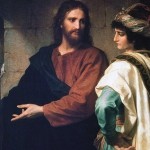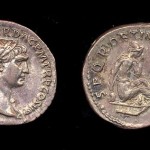 Mark 12:13-17
Mark 12:13-17
Here’s one that ought to keep your brains busy for a while: what is the proper relationship between the Church and the State? Such things used to be self-evident. Well, sort of. At times Christians have been persecuted by the State and yet loyal subjects; the biggest advocates of State power; advocates of the Church and State being nearly coterminous; at the forefront of fighting for the separation of Church and State; and other variants of these configurations.
In America today, there’s a lot of confusion on this issue for a number of reasons. It’s not one that most American Christians think much about, certainly not in a very informed way. But the time for slumber is past, and the rules have changed. Until fairly recently, it was pretty easy to see that America was a largely Christian nation, in terms of its national character and ethos. The original colonies had such staunchly Christian charters that would give ACLU members a coronary!
While the Constitution prohibited the establishment of religion by the federal government, Christianity was de facto the established religion. What was originally meant is that no particular brand of Christianity would be given privileges over any other. But the assumption was that America was a Christian nation, and we see those assumptions in many vestiges of her founding.
But the rules have changed. Jefferson’s unofficial comment about the separation of Church and State has been deified to act as part of the Constitution itself. Under the influence of this powerful idea and the powerful army that has defended it and attacked its enemies, America has become a place where a divorce has been pronounced between Church and the State and religion and public affairs. This phenomenon is what sociologists call “secularization,” and it has less to do with the common perception that religion is going away and everything to do with the effect that religion has lost its influence over our public lives.
This configuration of the relationship between the Church and the State which is called secularization is symbolized by the common slogan that “I’m spiritual but I’m not religious.” People mean different things by this. One of the things that is suggested is that I can approach God in my own individual way, however I want, and not based on some larger institution’s view of God. A corollary concept would be that religion is forbidden from having any direct public influence over the affairs of the nation.
If you’ve paid attention to the 2008 presidential campaigning, the issue arose in several contexts, especially regarding the Southern Baptist beliefs of Mike Huckabee and the Mormonism of Mitt Romney. Notice how when anyone dares to suggest that his religion actually effects how he will govern, he is smacked down by both parties.
I believe that a large part of what people are calling postmodernism is really post-Constantianism. What has happened is an unravelling of the understanding that America was founded on Christianity, though not any particular form of it and not constitutionally. What we are seeing is the emergence of a supermarket of religions where the consumer is king. What we are witnessing is the unparalleled degree of choice in every area of our lives, including religion.
Whether by the decree of the State or the simple limitations of culture and geography, the fact is that most people throughout history have only practically had very limited choices in religion. In certain lands, you would be Christian because that’s who the culture was and there was a high price for not being or pretending to be a Christian, at least on the outside. Even as late as the 1960s, it was still Christianity that ruled America culturally. You could see this even in the reaction to religion because the religion being reacted to was always Christianity. It’s no surprise that the most rabid atheists usually grew up in Christian homes where Christianity may have been done poorly. I had an intuition that this might be the case for the notorious Marilyn Manson, and so it was.
We are therefore entering an age where it will be necessary to make a choice to be a Christian: it will no longer be assumed that you are a Christian just because your parents were or everyone else in the South is. With this, will come the terrible prospect of persecution but also the wonderful opportunity for truly grasping the cost of Christian discipleship.
So what does this have to do with our lesson this morning? Regardless of which Church-State configuration exists, Jesus the Good Shepherd guides us into the truth. We are to obey the civil authorities and give them what they are owed, even when we don’t like it, for they are instituted by God. The coin in ancient times was a symbol of a king and empire’s dominion. When a king conquered other lands, one of the first things he would do was to issue his own coinage. The dominion of a king’s power could be measured by the extent of where his coinage was accepted. Because the king or empire produced the coins, they owned them and had a claim on them and everything attached to them.
The Roman coin bore the image of the Roman emperor, and so the coin and the labor attached to it belonged to the emperor to some (but not an absolute) degree. But the man himself bears the image of God Himself, and everything attached to that man belongs to God. Not just the coin, not just the increase, but everything – especially the man himself.
This was the testimony of the early church, who lived under the Roman emperor. “You give to Caesar only money. But to God, give yourself,” Tertullian said. St. Augustine reminds us that that “We are God’s money. But we are like coins that have wandered away from the treasury. What was once stamped upon us has been worn down by our wandering. The One who restamps his image upon us is the One who first formed us. He himself seeks his own coin, as Caesar sought his coin. It is in this sense that he says, ‘Render to Caesar the things that are Caesar’s, and to God the things that are God’s,’ to Caesar his coins, to God your very selves.”
We have today an unparalleled degree of choice. What will you do with the resources God has given you? The money which is His, and not just the United States government’s, and of which there is more than ever before in history; the time, of which there is more leisure time than in much of history; yourself, of which there is exactly as much as at any other time in history?
You pay Uncle Sam and lesser sams perhaps 15 to 40% of your increase – probably because you have to. What will you give God who deserves it all but is less tyrannical in this life about extracting it?
Regardless of which configuration of Church and State we find ourselves under, there is the same configuration of the relationship between the Creator and His image: we should render to God what is God’s, and we are God’s. And you and I are God’s, body, mind, and soul.
Prayer: O Lord our Governor, whose glory is in all the world: We commend this nation to your merciful care, that, being guided by your Providence, we may dwell secure in your peace. Grant to the President of the United States, the Governor of this State (or Commonwealth), and to all in authority, wisdom and strength to know and to do your will. Fill them with the love of truth and righteousness, and make them ever mindful of their calling to serve this people in your fear; through Jesus Christ our Lord, who lives and reigns with you and the Holy Spirit, one God, world without end. Amen.
Points for Meditation:
1. Has the amazing degree of choice in your life been a blessing to you? What have you done with the much which God has entrusted to your care?
2. Examine your attitude about giving to the State, as well as your attitude about giving yourself to God.
Resolution: As Lent continues, renew your vow to give yourself to the Lord in one specific area, remembering that you are His image and owe all to Him.
© 2012 Fr. Charles Erlandson
Thomas Jefferson – Rembrandt Peale – Wikipedia entry on Separation of Church and State











